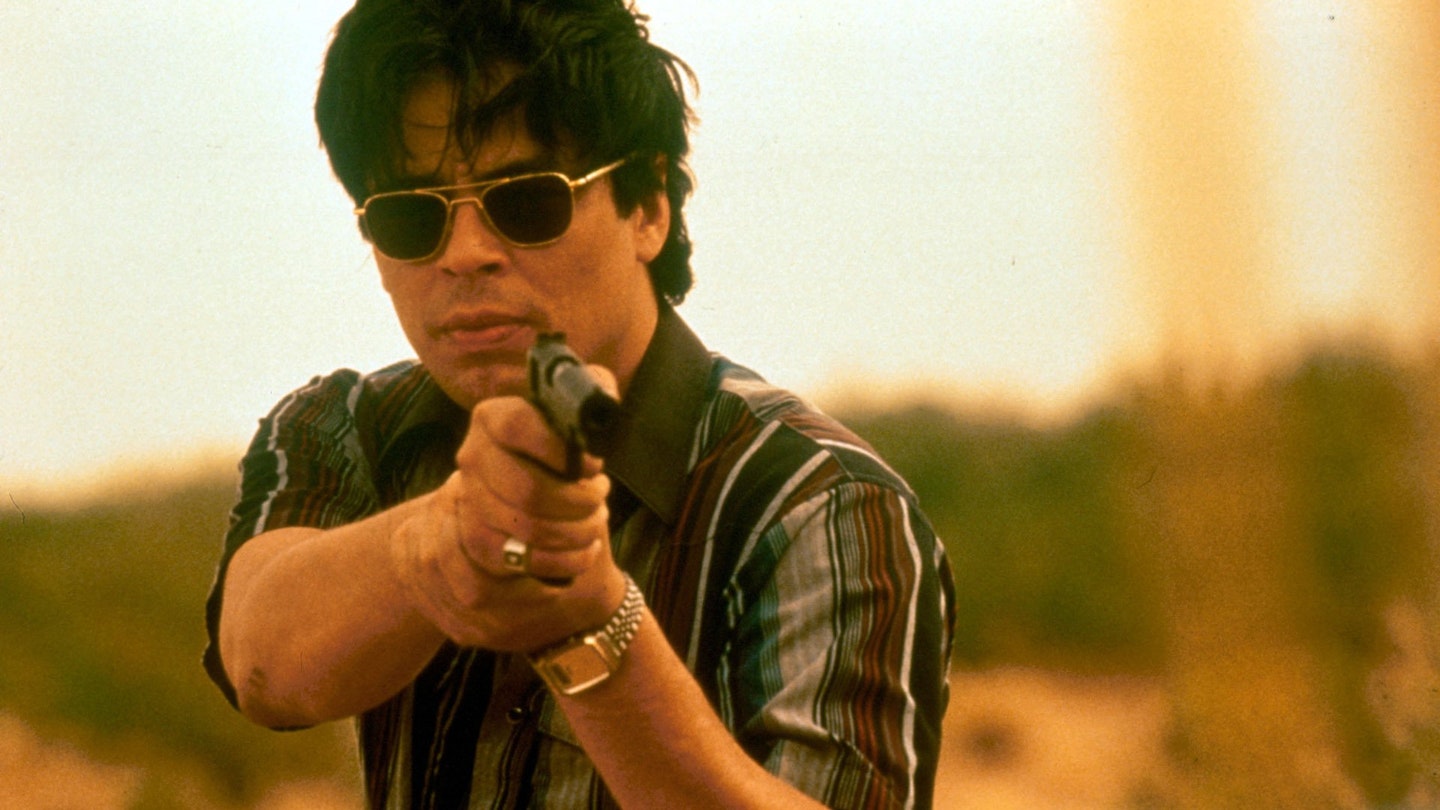Watching Traffic, it's a while before you realise you're watching a movie made in America. We open on a car parked in the desert, suffused with sun-bleached light. Inside, two Spanish men talk in their native tongue about dreams. Then a plane lands overhead and the movement starts in the form of constant running, camera slung loose over a shoulder, which doesn't let up for two and a half hours. Welcome to Steven Soderbergh's 'run and gun' movie.
Not much in Traffic's screenplay is entirely new— painstakingly researched and full of inside detail, certainly, but we have been here before (especially if you caught the original Channel 4 mini-series, Traffik, upon which Stephen Gaghan based his script). What elevates this company — drug dealers, corrupt cops, informants etc. — to a new plane is Soderbergh's storytelling skills. Just as his imaginative framing of a seduction reinvigorated the traditional love scene in 1998's Out Of Sight, Soderbergh works similar wonders with his largest canvas yet: two countries, three distinct storylines, well over 100 speaking parts. But what we are dealing with here is economy: Soderbergh's signature cutting, always to the chase, establishes a breathless rhythm which is more real than real. It's like a documentary with all the boring bits taken out.
Soderbergh describes Traffic as his $49 million Dogme movie, and certainly the hand-held style pushes the post-Blair Witch boundaries of mainstream moviemaking, but with the multiple storylines and delicately poised moral ambiguity, Traffic is closest in feel to a feature-length episode of NYPD Blue — indeed, it's no coincidence that Gaghan won an Emmy for his work on the revolutionary cop show. And the fact that Soderbergh, as his own cameraman and cinematographer, has employed natural light, doesn't make Traffic any less visually da ring. Pre- and post-production processes achieve a distinctive look for all three storylines: steely blues for the Beltway-bound Douglas; burnt yellows for the oppression of Del Tore's Mexico; bright colours and deep shade for the crumbling cocktail society of Zeta-Jones.
As for the cast themselves, newlyweds Douglas and Zeta-Jones are just fine in a uniformly excellent ensemble, Douglas especially finding real pain and pathos in an unshowy role; however, the ace in the pack here is Del Toro's Tijuana lawman, an honest guy caught in an impossible situation. Mumbling mostly in Spanish, Del Toro turns in a performance of such effortless and classic cool that they should spin him off into his own TV show.
If Gaghan's ambitious script is not perfect — there is a little hectoring at times, and some of the allegiance shifts in this treacherous world are not entirely convincing and sometimes hard to follow — Soderbergh's electrifying pace always keeps this huge project firmly on the rails, always moving, always running.


